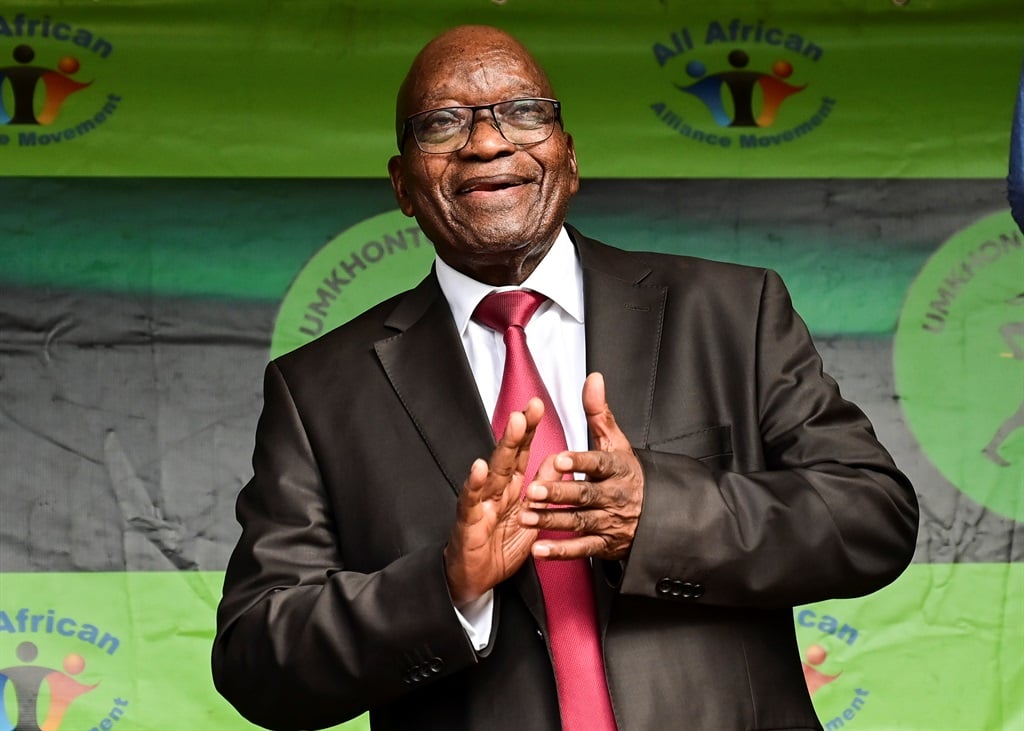Former president Jacob Zuma. (Darren Stewart/Gallo Images)
An analysis of accounts on social media platform X that have been used to promote Russian interests in South Africa are now being utilized to rally support for a new party backed by former president Jacob Zuma, according to a director at the Centre for Information Resilience.
The observation is the latest example of how Moscow appears to be using social media to try and sway the outcomes of votes around the world as it seeks to promote leaders that can help further its interests. Russia allegedly interfered in the US election in 2016, which saw social media being used to sow distrust in the process and institutions. More recent examples in Africa include support for pro-Russian military regimes in West Africa.
Zuma, who led South Africa from 2009 to 2018 and forged closer ties with Moscow during his tenure, announced in December that he would campaign for the uMkhonto weSizwe Party, or MKP, rather than the ruling African National Congress, in next month’s elections.
Several X accounts that praised Russia’s invasion of Ukraine since it began in February 2022 and have drawn parallels between Zuma’s leadership and that of Russian President Vladimir Putin, have been used to promote the new party ever since, the CIR said in research shared with Bloomberg.
The most prominent of the accounts on X, formerly known as Twitter, has about 170 000 followers and constantly posts endorsements of MKP and Zuma, said Tom Southern, the London-based independent non-profit’s director of special projects. The account interacts with thousands of others, amplifying its impressions, the CIR research shows. At times, those impressions exceed 1 million per post.
Russia praise
The postings are interspersed with praise for Russia, its deepening relations with military governments in West Africa and criticism of current South African President Cyril Ramaphosa.
The accounts have also been used to retweet so-called deep fakes of former US President Donald Trump endorsing Zuma. Some of them claim to be based in Russia and Burkina Faso, the West African nation under military rule that’s forging closer ties with Moscow.
“I can’t comment on who owns these accounts,” said Nhlamulo Ndlela, an MKP spokesman. “Neither you or I know if these accounts are legitimate. They could be propaganda.”
Dmitry Peskov, a spokesman for the Kremlin, said that Russia isn’t involved with the accounts.
